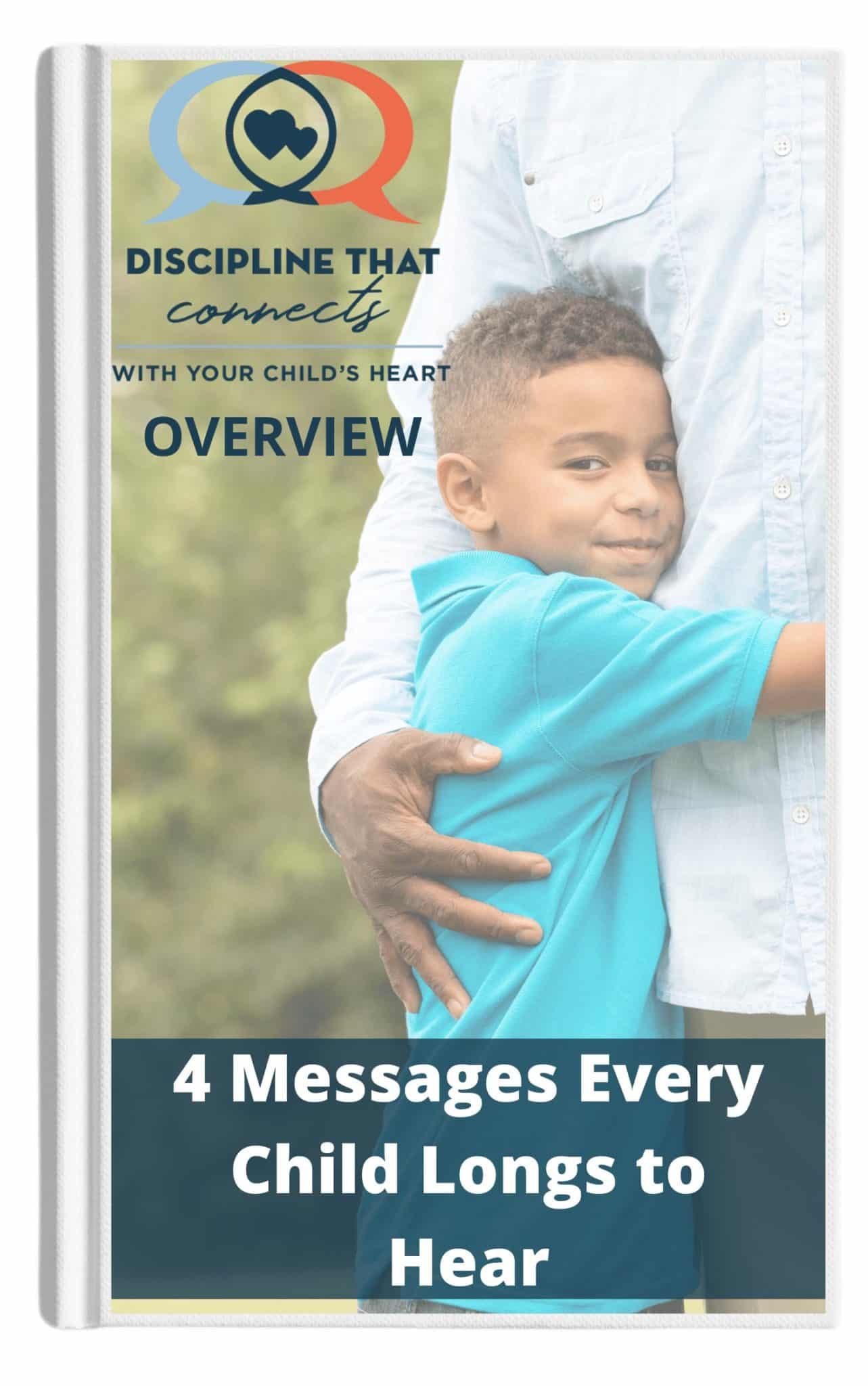
What To Do When You Think Your Child Is Doomed

Imagine you have endured one of those days when everything goes wrong. The challenges of parenting drain every last ounce of energy and hope from your soul. You feel in your bones that your children are doomed by every parenting failure. Or by being an only child. Or a divorce in the family. Or because you work outside the home. Or don’t work outside the home. Or whatever anxiety-inducing situation has got you worried.
Good news! Your kids are not doomed.
Does the following doomsday pattern of thinking sound familiar? “Life is so hard. These kids are doomed. I’m a failure as a parent.” This pattern — though common — can actually be the start of an unhelpful spiral. Your belief that your children are doomed may even push them toward the endpoint you’re afraid of.
Your emotional reactions can become predictions
These types of statements (like “My children are doomed!”) are examples of a tendency known as extreme thinking. Extreme thinking forms black-and-white, all-or-nothing judgments about the moment (which is only one part of the picture), and uses those judgments to define the whole picture.
This tendency is fueled by how our brains work. The brain wants to keep things simple and efficient. For example: When you’re sad or frustrated, it’s hard to access the good memories of better times. Instead, all you can think about is more sad or frustrating things — including sad or frustrating futures for you and your children. It doesn’t easily access memories and feelings from a different emotional state. A scene from the classic movie Parenthood contains an extreme example of this.
When extreme thinking predicts a picture-perfect future
In Parenthood, Steve Martin plays the worried father of an insecure son. During one scene he is coaching his son’s Little League team. Despite the protests of the parents and players, he sends his son to play second base with the game hanging in the balance. As his son runs onto the field, the dad gets lost in a daydream in which his son becomes the game’s hero. His dream then jumps into the future to his son’s speech as Harvard’s valedictorian, “I’d like to thank the greatest guy in the world, my Dad, for making this all possible. His belief in me during a Little League game turned my life around. Thanks, Dad!”
When extreme thinking leads to a vision of “doomed” children
Crowd noise snaps Martin back to reality as his son drops a pop fly and his team loses the game. Martin now envisions a different daydream – one in which his son makes a series of horrendous choices, “It’s all your fault, Dad!” he screams. “If you hadn’t made me play second base that day, none of this would have ever happened!”
This clip is a little extreme, but it illustrates something most parents can relate to: what happens when our “extreme thinking” causes us to view specific, temporary behaviors as pervasive and permanent.
Examples of projecting a doomed future onto our children
Extreme thinking may lead parents to lose hope. Maybe you can relate to some of these dooming statements about your own children:
- “He’s always done this and always will.”
- “She’s gonna be just like ____ when she grows up.”
- “The teenage years will be horrible!”
- “This kid will never make it in life.”
What’s the result of this doomsday thinking?
Parents caught in these kinds of negative thoughts then subtly or overtly communicate these negative expectations to their children. The subtle evidence of these thoughts may be found in a parent’s exasperated sigh that precedes a corrective interaction with a child or in the simple tendency always to assume the worst when entering corrective situations.
It might be a thought of, “Oh, she’s at it again…” or, “Will this ever stop?!” A more overt clue might be the words parents use: “What’s wrong with you now?” or “I’m so sick of your behavior!”
How to stop extreme thinking and recognize behavior as temporary
The way out of extreme thinking is to learn to keep negative situations in a proper perspective and do some heart work to examine and be thoughtful about your core beliefs. When you view tough situations as temporary and full of opportunities, you can help your kids learn from them rather than be defined by them. It also helps you to enjoy them more in the process!
Examples of truths to replace “children are doomed”
Lie: Our house is always such a disaster! My children are doomed to be messy and irresponsible in life.
Truth: We are in a tough phase, and the kids haven’t learned to be very responsible with their stuff yet. But I can take small steps to coach them in better habits.
Lie: My child is so emotional and unreasonable! He’s going to be a mess as a teenager.
Truth: My intense child has really big feelings, but God has made him this way for good purposes. I’ve got time to help him learn to navigate those feelings in healthy ways.
Transform your thinking about your children
Here are a few questions to guide you toward healthier, hope-filled beliefs:
- What subtle anxieties do I feel about my child’s struggles?
- How does that anxiety affect my responses to my child?
- What are some true statements about these struggles?
- How can I remind myself about these truths when I need them?
FREE Downloadable/Printable PDF
Want regular encouragement during the messes of daily life in parenting? Download our “100 Truth Phrases to Keep You Going” today!
We have so much reason to hope! “If God is for us, who can be against us!” God is for your family, and you can have confidence in that. “…blessed is the one who trusts in the Lord, whose confidence is in him.” Jeremiah 17:7
So “dump the doom!” Send it packing with God’s hope-filled truth about your family. It’s powerful when, over time, your mind is transformed with God’s truth!
Research shows, “Even in the toughest times, when a person can think positively about the future, they are capable of reducing the stress felt by their family members by as much as 60 percent.” In other words, when you have hope for the future, it can spread encouragement and reduce stress for your child and anyone else in your family. When you are overflowing with God’s hope, this has a life-giving impact on those around you!

4 simple messages.
1 simple framework.
Get the FREE ebook, and start your journey toward better, more connective discipline in your home.




